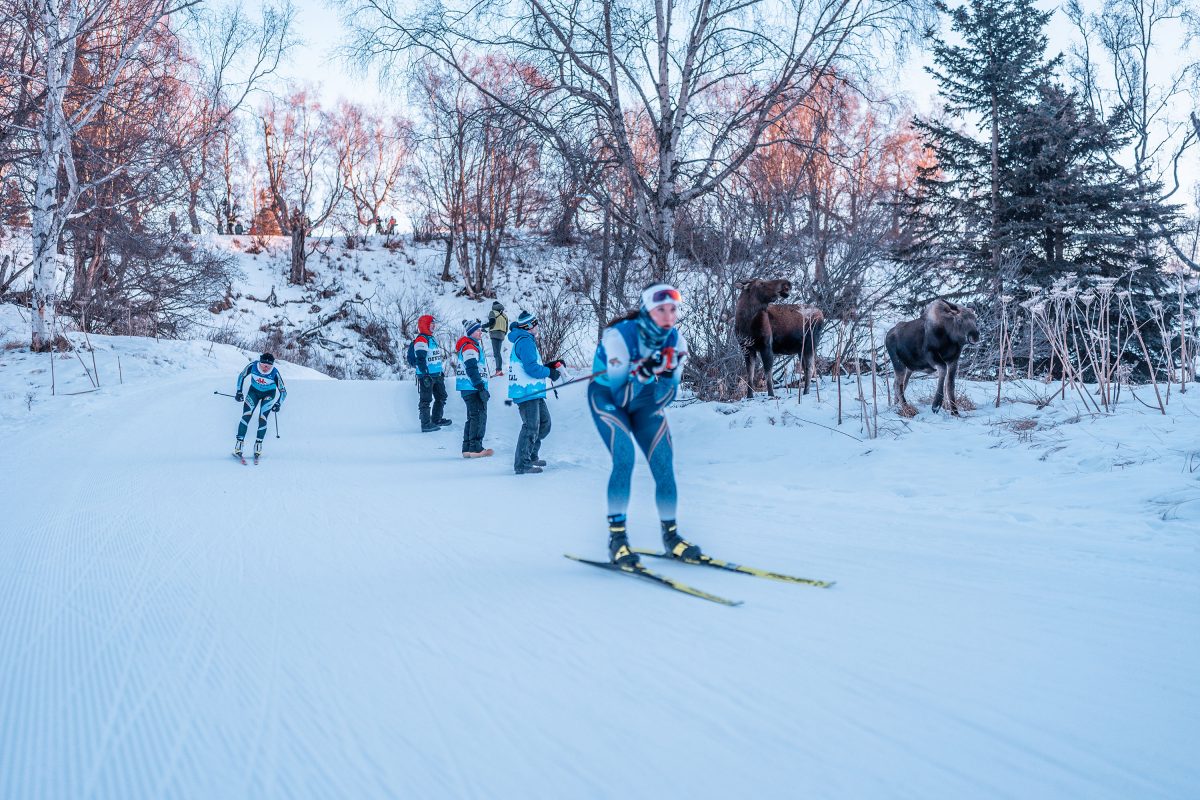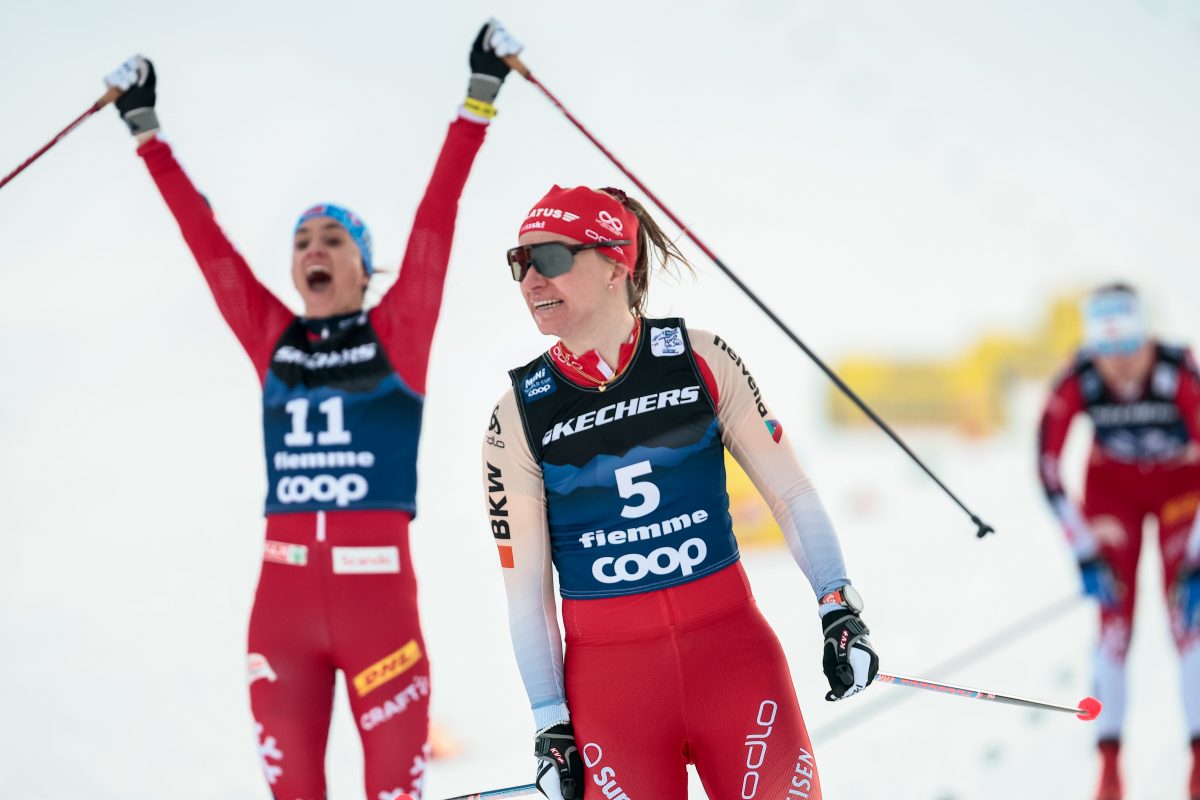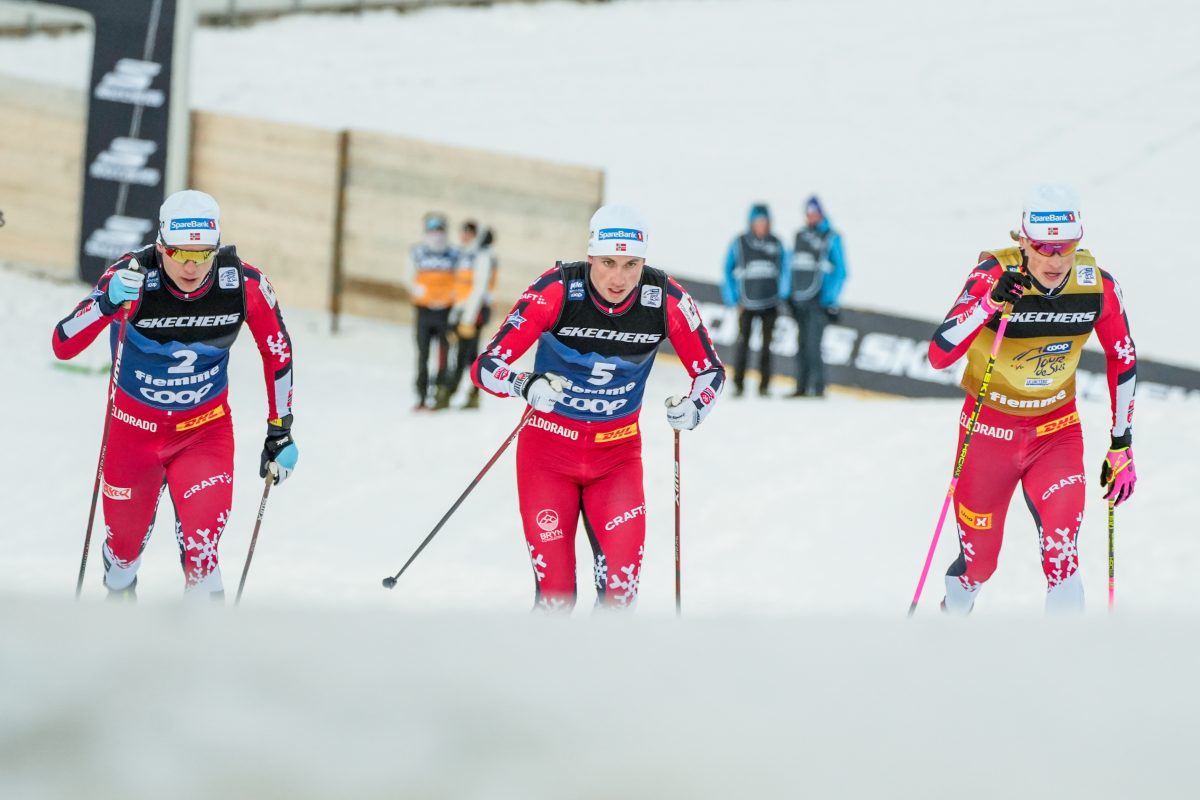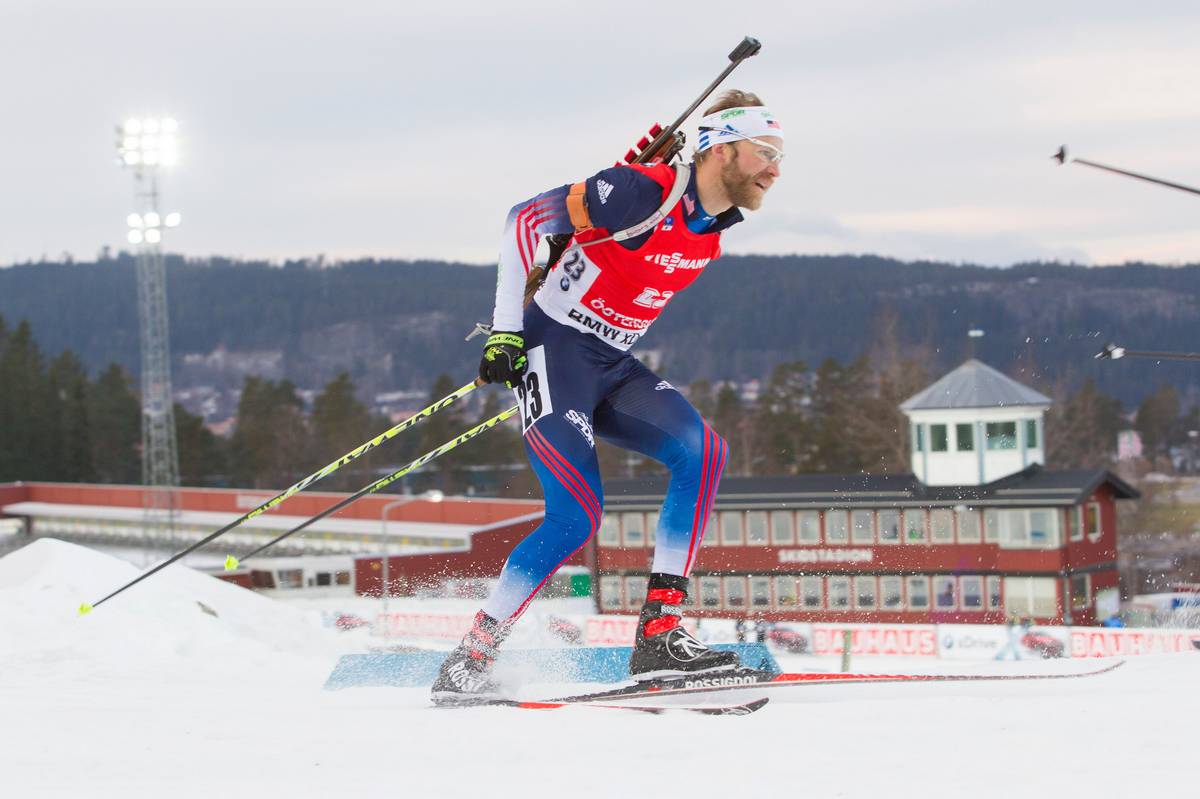
The United States biathlon team went into today’s World Cup pursuits looking for improvement after some solid elements in Saturday’s sprints in Östersund, Sweden.
Things didn’t work out for Tim Burke, who started in 17th but was felled by six penalties and slipped to 35th instead of moving forward.
“I warmed up for a biathlon race but entered a wind lottery today. #outdoorsports” he tweeted after the competition.
But Lowell Bailey and Susan Dunklee charged into the top 20 after starting 23rd and 41st in their respective races, so in that sense the day was definitely a success.
In both races, clean shooting was near-impossible due to unpredictable gusty winds. Bailey had moved from 23rd into the top 15 after the two prone stages, but then missed two in his first standing stage. Most days that would have been a major setback.
“I didn’t really know until I went back out on course, but they said I was in 20th place after missing two, so I had only fallen back like five places, which, you know, that tells you that a lot of the rest of the field had misses,” he said in a Skype interview. “So I wasn’t mentally disturbed by that or anything.”
Bailey headed back out on course, accrued one more penalty in his second standing stage, and ended up 17th, 1:35 behind race winner Martin Fourcade of France. He was pleased with how he had handled the conditions, especially after a frustrating 20 k individual on Wednesday where he had missed two shots in his final shooting stage and dropped from the top ten into 20th.
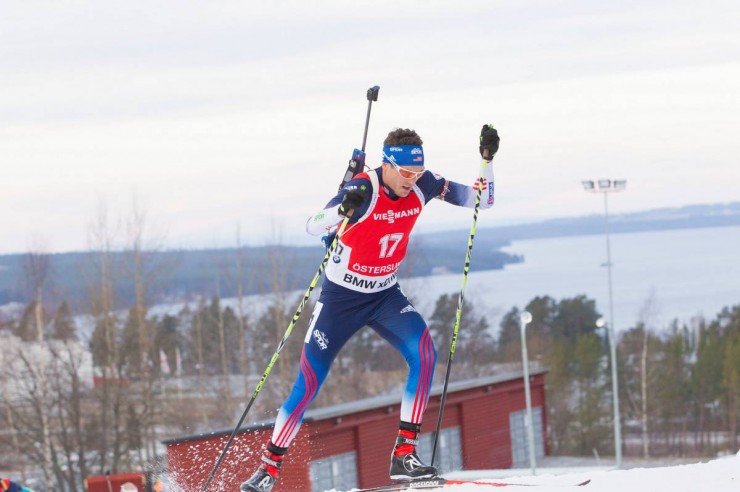
“Because of my experience in the individual – during the last stage it was similar conditions and I decided to try to wait out the wind, and I ended up missing two and it wasn’t a great strategy – today my strategy going into the race was that even though it was windy, I wanted to be aggressive in the shooting range,” he explained. “So I was happy with only missing three, considering how windy it was, and you saw that from a lot of the field. There were a lot of misses in standing today.”
That same syndrome showed up several times in today’s pursuit, with everyone from stars Ole Einar Bjørndalen to Darya Domracheva trying to wait out the wind, and then missing anyway.
Dunklee also used some deliberate strategy to manage her shooting. With only three penalties – a single woman, Lisa Vitozzi of Italy, shot clean, and the next best tallies were a group of athletes with two penalties apiece – Dunklee moved from 41st up to 19th.
“I got this idea in my head partway through the first loop that maybe if I could get into the top 30, for the first shooting, it would be an advantage because there’s that big wall on the left side of the stadium,” she explained in an interview. “It was a little bit windy today [so maybe it would be sheltered]. I didn’t know if it was realistic or not, but I decided to just go for it and I kept passing people on that first loop. I got into the top 30, so I got to shoot on point 30! And it was windy when I came in, so I was glad I did that. I hit all my targets that first loop.”
The move had consequences, of course – Dunklee described being “very tired” on the second loop after all the work she had done to make that speedy opening. But she was still able to get it done, shooting well and also skiing the sixth-fastest course time of the day.
Dunklee was two and a half minutes behind winner Kaisa Makarainen of Finland, but Makarainen had put the hurt on the entire field and won by almost a minute. Dunklee was only 53 seconds out of the top ten, and she feels there are even better results still to come, in part because two of her three penalties were avoidable.
“Even my second prone, those were dumb misses,” she said. “I have been working to be a little more assertive on the trigger, and I just had a little too much pressure on the trigger and I set them off just a little bit too early. I know they went low and I could feel that. Those were simple mistakes. So I was pretty close to not having those mistakes too, which is exciting.”
For Bailey, the race was a positive way to end a weekend where he has felt continuous improvement in his skiing.
“I felt better,” he said of the pursuit. “I’ve kind of felt like I have felt better and better as the racing has gone on, which is a good sign. Definitely I’m looking forward to a new venue and a little bit more sunlight.”
That’s in reference to the World Cup moving from subarctic Sweden to Hochfilzen, Austria, for the next weekend of racing.
Next weekend will not only feature eight and a half hours of sunlight in Austria rather than the five the athletes have been seeing in Sweden, but the first men’s and women’s relays of the season.
The U.S. women have only three athletes in Europe and so can’t compete, but the men are looking forward to their first opportunity of the year.
“We’re going to just go out there and see what happens,” Bailey said.
Besides Burke and Bailey, the team will feature Russell Currier, who has been beset by shooting woes in both the individual and sprint races in the past week, and Leif Nordgren, who moved from 51st up to 46th in today’s pursuit.
“Today was definitely not a bad day considering the conditions,” he wrote in an e-mail. “It was pretty tricky wind yet again, so I was happy to move up a few places, mostly because of ok shooting for today. With two misses in the last standing though I wasn’t happy with how it wrapped up. I would have been fighting for top 40 which is my goal in every race. But again, that’s biathlon and sometimes it doesn’t pan out. I didn’t feel quite as good today as yesterday, but I think with a few days to recover now hopefully I can put together a good week in Hochfilzen.”
Chelsea Little
Chelsea Little is FasterSkier's Editor-At-Large. A former racer at Ford Sayre, Dartmouth College and the Craftsbury Green Racing Project, she is a PhD candidate in aquatic ecology in the @Altermatt_lab at Eawag, the Swiss Federal Institute of Aquatic Science and Technology in Zurich, Switzerland. You can follow her on twitter @ChelskiLittle.

